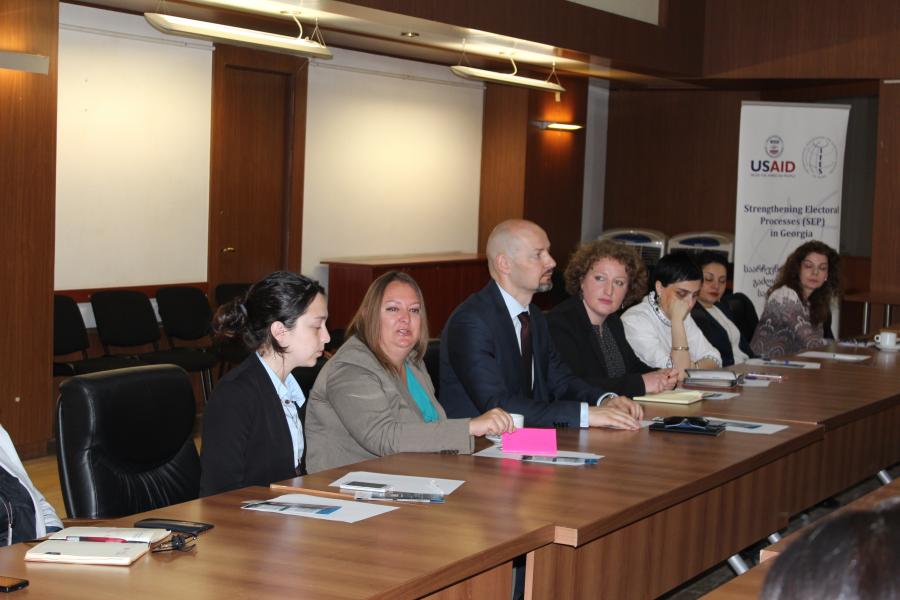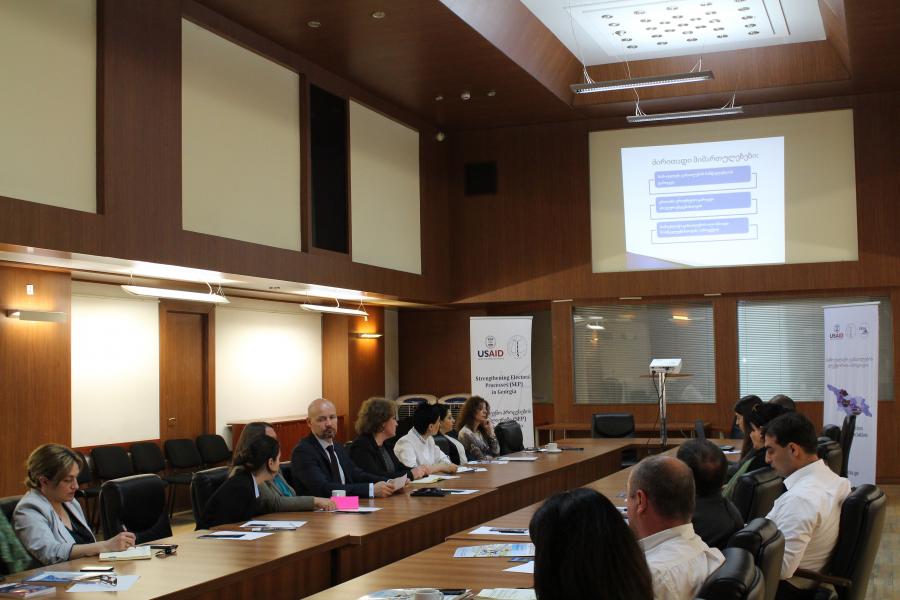On May 11, with the initiative of Civic Education Lecturers Association the annual round table on the issues of teaching civic education was held at National Parliamentary Library of Georgia.
Representatives of the Ministry of Education and Science of Georgia, IFES-Georgia, PH International, the National Assessment and Examination Center, Georgian Young Lawyers’ Association, the Department of Civic Education of the National Parliamentary Library of Georgia and other organizations working on this topic participated in the event.
During the meeting Dr.Beata Martin-Rozumiłowicz - the Regional Director for Europe and Eurasia at the International Foundation for Electoral Systems (IFES), talked about the importance of teaching civic education at schools and universities and pointed out that Georgia is one of the leading countries in the field of civic education.

The head of Civic Education Group at the National Assessment and Examination Center Ms. Irma Khomeriki gave a speech about the main directions of Civic Education Group and the basic requirements for civic education teachers’ certification exams. She also pointed out that Civic Education Dictionary, teaching aid and manual “How to prepare for teachers’ certification exams” was created within the framework of supporting teachers. The speaker also touched upon the topic of national exams and said that since 2015 the number of Georgian universities has added Civic Education as an elective subject, which was chosen by 1619 entrants and 84% out of them have successfully passed the mandatory limit.
The representative of the Ministry of Education and Science of Georgia Ms. Rusudan Tevzadze talked about the new subject “Me and Society”, which will be added to the national educational plan and is intended for 3rd and 4th grade students. According to Ms. Tevzadze, the subject is aimed at helping the children in personal perception and giving them the basic knowledge of their native environment. Thus, the subject is the matter of crucial importance not only for general education but also for implementing the national goals.

At the end of the meeting there was a discussion on the issues of teaching civic education. The executive director of the Civic Education Lecturers Association (CELA) Tamar Karaia summarized the event, thanked the audience for attending the meeting and also touched upon the importance of future cooperation and sharing experience among the people working in the field of civic education.
The meeting was held by the Civic Education Lecturers Association and made possible with the support of the American people through the United States Agency for International Development (USAID) in the framework of the project Strengthening Electoral Processes (SEP), implemented by the International Foundation for Electoral Systems (IFES).


